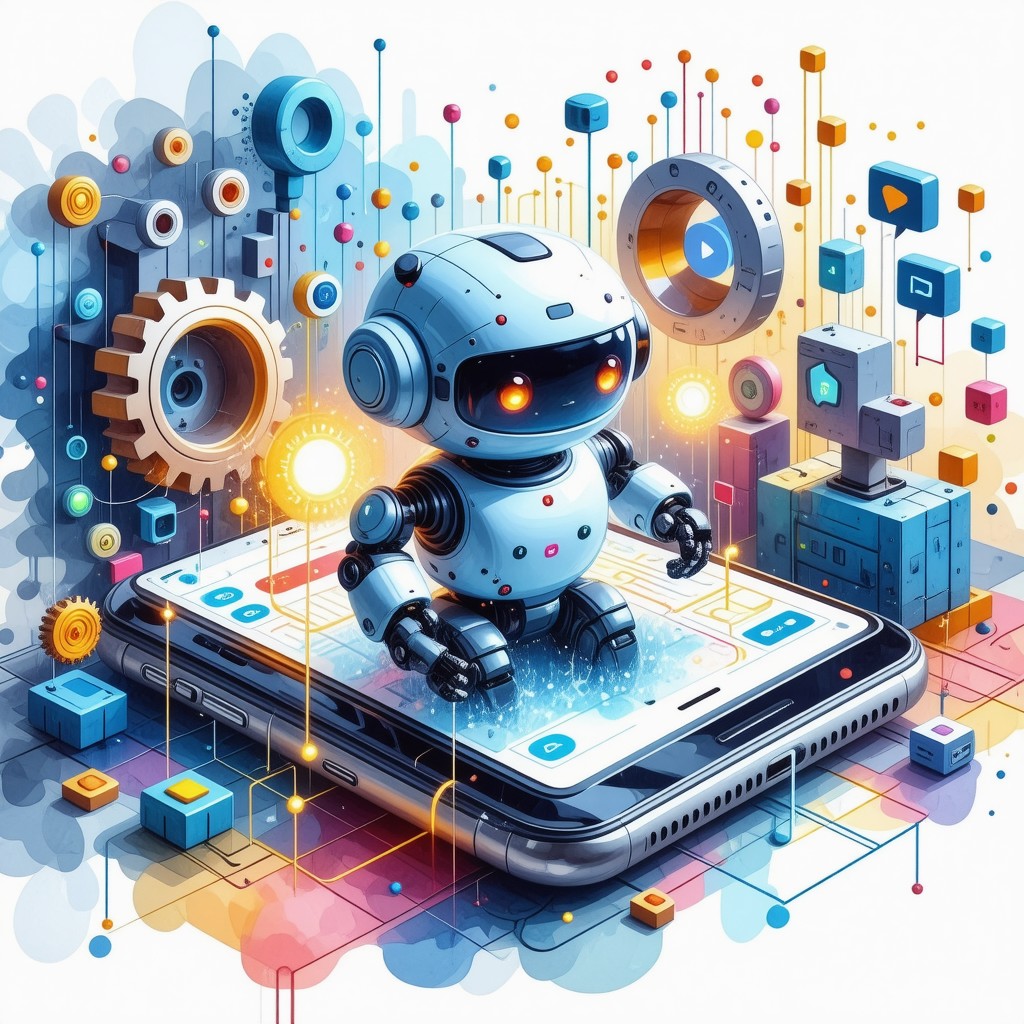Key Takeaways
- Chatbots significantly enhance customer service by providing instant responses, improving service quality, and increasing customer satisfaction.
- They offer 24/7 availability, ensuring customers can receive assistance at any time, leading to higher engagement and loyalty.
- By automating routine inquiries, chatbots reduce operational costs, allowing businesses to allocate resources more effectively.
- Chatbots enhance personalization in customer interactions, tailoring responses based on user data to improve the overall experience.
- They facilitate data collection, providing valuable insights into customer preferences and behaviors for better decision-making.
- In the workplace, chatbots support employees by streamlining HR processes, improving productivity, and enhancing communication efficiency.
- Real-world applications show that businesses using chatbots can experience significant sales increases and operational cost reductions.
In today’s rapidly evolving digital landscape, understanding the chatbot benefits has become essential for businesses aiming to enhance customer engagement and streamline operations. This article delves into the comprehensive advantages of chatbots, exploring their purpose and the significant impact they have on both customers and employees. From improving user experience to boosting workplace productivity, the benefits of a chatbot are vast and varied. We will examine how chatbots revolutionize customer service, the technology behind them, and the potential risks associated with their implementation. Additionally, we will compare chatbots to traditional customer service methods and provide real-world examples showcasing the benefits of using AI chatbots across different industries. Join us as we uncover the transformative power of chatbots and their role in modern business strategies.
What are the benefits of chatbots?
Understanding chatbot benefits for businesses
Chatbots offer a multitude of advantages for businesses, significantly enhancing operational efficiency and customer satisfaction. One of the primary benefits of chatbots is their ability to provide enhanced customer service. By delivering immediate responses to inquiries, chatbots improve service quality with every interaction. According to a study by Juniper Research, chatbots can handle up to 80% of routine customer service inquiries, allowing human agents to focus on more complex issues.
Another key advantage is the customer feedback collection capability. Chatbots can efficiently gather feedback through automated surveys and interactions, providing businesses with valuable insights into customer satisfaction and areas for improvement. This data is crucial for refining products and services.
Additionally, chatbots contribute to the reduction of customer requests directed to human agents. By offering self-service options, they significantly lower the volume of inquiries, saving time and reducing operational costs. This efficiency is complemented by their ability to understand customer intent using natural language processing (NLP), which enhances interactions and leads to more accurate responses.
Furthermore, chatbots drive increased customer engagement through personalized interactions. A report from HubSpot indicates that 47% of consumers are open to purchasing items through a chatbot, highlighting their effectiveness in boosting sales. They can also facilitate transactions and provide product recommendations, directly contributing to revenue growth.
Lastly, chatbots streamline service with routing and triage capabilities, ensuring customers receive the assistance they need without unnecessary delays. By incorporating chatbots like Messenger Bot, businesses can further enhance these benefits, providing a platform for seamless communication across various channels.
Chatbot benefits for customers: Enhancing user experience
For customers, the benefits of a chatbot are equally significant, primarily revolving around improved user experience. Chatbots provide instant support, allowing users to receive answers to their questions at any time, which is particularly valuable in today’s fast-paced digital environment. This immediate access to information enhances customer satisfaction and loyalty.
Moreover, chatbots facilitate a more personalized experience by leveraging data to tailor interactions based on user preferences and past behaviors. This level of customization not only makes customers feel valued but also encourages repeat interactions. The benefits of using AI chatbots extend to their ability to handle multiple inquiries simultaneously, ensuring that customers are not left waiting for assistance.
Additionally, chatbots can guide users through complex processes, such as making a purchase or navigating a website, thereby reducing frustration and enhancing the overall experience. By integrating chatbots into customer service strategies, businesses can create a more efficient and enjoyable journey for their customers.

What is the purpose of a chatbot?
The purpose of a chatbot is to facilitate automated communication between users and services, enhancing user experience across various platforms. Chatbots leverage artificial intelligence (AI) and natural language processing (NLP) to understand and respond to user inquiries in real-time. They are commonly deployed in social media messaging apps, standalone messaging platforms, proprietary websites, and mobile applications, as well as in phone systems through integrated voice response (IVR).
The role of chatbots in customer service
Chatbots play a crucial role in customer service by providing timely, 24/7 assistance for customer inquiries, troubleshooting, and support. This capability significantly reduces wait times and improves customer satisfaction. According to a study by Juniper Research, chatbots are expected to save businesses over $8 billion annually by 2022 through improved customer service efficiency. By integrating chatbots into customer service strategies, businesses can enhance their operational efficiency while ensuring that customers receive immediate responses to their questions. For more on maximizing chatbot benefits in customer service, check out this resource.
What is chatbot technology and how does it work?
Chatbot technology is built on advanced AI algorithms that enable machines to simulate human-like conversations. These systems utilize NLP to interpret user inputs and generate appropriate responses. The technology can be integrated into various platforms, allowing businesses to automate interactions across multiple channels. Key use cases of chatbots include customer service, human resources, e-commerce, lead generation, and personal assistance. For instance, in e-commerce, chatbots guide users through the purchasing process, offer product recommendations, and handle order inquiries. A report from Gartner indicates that by 2025, 75% of customer service interactions will be powered by AI chatbots. To explore real-life applications and benefits of AI chatbots, visit this article.
What are the advantages and disadvantages of chatbots?
Understanding the benefits of chatbots is crucial for businesses looking to enhance their customer service and operational efficiency. While chatbots offer numerous advantages, it is equally important to consider their limitations. Below, we explore the key benefits and risks associated with implementing chatbots in various business contexts.
Benefits of chatbots: Streamlining operations
Chatbots provide a range of operational benefits that can significantly enhance business efficiency:
- Reduced Waiting Time: Chatbots deliver instant responses to customer inquiries, drastically reducing waiting times compared to traditional customer service methods. According to a study by Juniper Research, chatbots can handle up to 80% of routine inquiries, allowing businesses to serve customers more efficiently.
- Scalability: With chatbots, businesses can scale their customer service operations without a proportional increase in staff. This is particularly beneficial during peak times, as chatbots can manage multiple conversations simultaneously, ensuring that customer needs are met promptly.
- Customer Insights: By analyzing interactions, chatbots gather valuable data on customer preferences and behaviors. This information can enhance marketing strategies and improve product offerings, leading to a more personalized customer experience.
- Increased Sales: Chatbots facilitate sales by guiding customers through the purchasing process, providing product recommendations, and offering promotions. Reports indicate that chatbots can increase conversion rates by up to 30%.
Chatbot benefits and risks: What to consider
While the benefits of a chatbot are compelling, businesses must also be aware of potential risks:
- Limited Emotional Understanding: Chatbots often struggle to interpret emotional nuances in customer interactions, which can lead to misunderstandings and dissatisfaction.
- Inability to Resolve Complex Issues: While chatbots excel at handling straightforward queries, they may falter with complex problems that require human intervention, resulting in frustration for customers.
- Potential for Errors: Chatbots can make mistakes in understanding or responding to queries, which can damage customer trust and lead to negative experiences if not addressed promptly.
- Negative Perception: Some customers have a negative perception of chatbots, associating them with poor service quality. This stigma can affect customer willingness to engage with automated systems, particularly in industries where personalized service is valued.
In conclusion, while the benefits of chatbots in streamlining operations and enhancing customer engagement are significant, it is essential for businesses to address the associated risks to maximize their effectiveness. For more insights on how to leverage chatbot technology effectively, check out our guide on maximizing chatbot benefits in customer service.
Why is chatbot so much better?
Chatbots have revolutionized customer service and business operations, providing numerous advantages that make them superior to traditional methods. Here are the key reasons why chatbots are considered significantly better:
- Cost Efficiency: Chatbots can save businesses substantial amounts of money by automating repetitive tasks that would typically require human intervention. According to a report by Juniper Research, chatbots are expected to save businesses over $8 billion annually by 2024 through improved efficiency and reduced labor costs.
- 24/7 Availability: Unlike human agents, chatbots can operate around the clock, providing instant support to customers at any time. This continuous availability enhances customer satisfaction and engagement, as users can receive assistance outside of regular business hours.
- Scalability: Chatbots can handle thousands of inquiries simultaneously, allowing businesses to scale their customer service operations without the need for additional staff. This is particularly beneficial during peak times when customer inquiries surge.
- Speed and Efficiency: Chatbots can process and respond to queries in real-time, significantly reducing wait times for customers. A study by IBM found that chatbots can resolve up to 80% of routine inquiries, freeing human agents to focus on more complex issues.
- Personalization: Advanced chatbots utilize artificial intelligence to analyze customer data and provide personalized responses. This tailored approach enhances the customer experience and fosters loyalty. For instance, Messenger Bot can integrate with various platforms to deliver customized interactions based on user preferences.
- Data Collection and Insights: Chatbots can gather valuable data on customer interactions, preferences, and behaviors. This information can be analyzed to improve products, services, and overall customer experience, leading to more informed business decisions.
- Consistency in Responses: Chatbots provide uniform answers to customer inquiries, ensuring that all users receive the same level of service. This consistency helps maintain brand integrity and trust.
In conclusion, chatbots are superior due to their cost-saving capabilities, 24/7 availability, scalability, speed, personalization, data collection, and consistent responses. As businesses continue to adopt this technology, the advantages of chatbots will only become more pronounced, making them an essential tool for modern customer service.
Comparing chatbots to traditional customer service methods
When evaluating the benefits of chatbots against traditional customer service methods, several factors highlight their superiority:
- Response Time: Chatbots can provide immediate responses, whereas traditional methods often involve waiting for a human agent to become available.
- Cost-Effectiveness: Implementing chatbots reduces the need for extensive customer service teams, leading to lower operational costs.
- Handling Volume: Chatbots can manage a high volume of inquiries simultaneously, unlike human agents who can only handle one conversation at a time.
- Data Utilization: Chatbots leverage AI to analyze interactions and improve service, while traditional methods may lack such analytical capabilities.
These factors illustrate how chatbots not only enhance efficiency but also improve the overall customer experience, making them a preferred choice for businesses aiming to optimize their customer service.
The benefit of AI chatbots in modern business
AI chatbots bring a multitude of benefits of using AI chatbots in modern business environments:
- Enhanced User Experience: AI chatbots provide personalized interactions, catering to individual customer needs and preferences.
- Increased Engagement: By offering instant responses and support, AI chatbots keep customers engaged and satisfied.
- Operational Efficiency: Automating routine tasks allows businesses to allocate resources more effectively, focusing on strategic initiatives.
- Continuous Learning: AI chatbots improve over time by learning from interactions, leading to better service and customer satisfaction.
Incorporating AI chatbots into business operations not only streamlines processes but also enhances customer relationships, making them a vital asset in today’s competitive landscape.

Are Chatbots Really Useful?
Real-World Examples of Chatbot Benefits
Chatbots have become increasingly useful across various industries, offering numerous benefits that enhance customer engagement and operational efficiency. Here are some key advantages of using chatbots:
1. **Personalized Customer Interactions**: Chatbots leverage artificial intelligence to analyze customer data and interactions, allowing them to provide tailored recommendations and responses. This personalization can significantly improve user experience and satisfaction.
2. **24/7 Availability**: Unlike human agents, chatbots can operate around the clock, providing immediate assistance to customers at any time. This constant availability can lead to higher customer retention and loyalty.
3. **Cost Efficiency**: Implementing chatbots can reduce operational costs by automating routine inquiries and tasks, freeing up human agents to handle more complex issues. According to a report by Juniper Research, chatbots are expected to save businesses over $8 billion annually by 2022.
4. **Scalability**: Chatbots can handle multiple conversations simultaneously, making them an ideal solution for businesses experiencing high volumes of customer inquiries. This scalability ensures that all customers receive timely responses without overwhelming staff.
5. **Data Collection and Insights**: Chatbots can gather valuable data from customer interactions, providing businesses with insights into customer preferences and behaviors. This information can be used to refine marketing strategies and improve product offerings.
6. **Integration with Messaging Platforms**: Chatbots can be integrated into popular messaging platforms, such as Facebook Messenger, allowing businesses to reach customers where they already communicate. This integration enhances accessibility and user engagement.
For more insights on the real-life applications and benefits of AI chatbots, check out [this article](https://messengerbot.app/exploring-ai-chatbot-uses-real-life-applications-benefits-and-main-purposes-explained/).
Benefits of Using AI Chatbots in Various Industries
The benefits of using AI chatbots extend across multiple sectors, showcasing their versatility and effectiveness. Here are some notable examples:
1. **E-Commerce**: In the retail sector, chatbots assist customers in finding products, answering queries, and facilitating purchases, leading to improved sales and customer satisfaction. They can also handle cart recovery, ensuring that potential sales are not lost.
2. **Healthcare**: Chatbots in healthcare provide patients with appointment scheduling, medication reminders, and instant responses to health-related inquiries. This not only enhances patient engagement but also streamlines administrative processes.
3. **Travel and Hospitality**: In the travel industry, chatbots help users book flights, check itineraries, and provide real-time updates on travel conditions. This enhances the overall travel experience and reduces the workload on customer service teams.
4. **Finance**: Financial institutions utilize chatbots for customer support, transaction inquiries, and even fraud detection. This not only improves customer service but also enhances security measures.
5. **Education**: Educational institutions employ chatbots to assist students with enrollment processes, course information, and administrative queries, making education more accessible and efficient.
By integrating AI chatbots, businesses can significantly enhance their operational efficiency and customer experience. For further exploration of diverse chatbot use cases, visit [this resource](https://messengerbot.app/exploring-diverse-chatbot-use-cases-from-human-resources-to-healthcare-and-everyday-applications/).
How do chatbots help employees?
Chatbots play a significant role in enhancing employee support and engagement across various organizations. Here are key ways in which chatbots assist employees:
- 24/7 Availability: Chatbots provide round-the-clock assistance, allowing employees to access information and support at any time, which is particularly beneficial for remote workers or those in different time zones. This constant availability helps reduce wait times for responses and enhances overall productivity.
- Streamlined HR Processes: HR chatbots can automate routine inquiries related to benefits, payroll, and company policies. By handling frequently asked questions, chatbots free up HR personnel to focus on more complex issues, improving efficiency within the department. According to a study by the Society for Human Resource Management, organizations using chatbots for HR tasks report a 30% reduction in response times.
- Personalized Employee Experience: Advanced chatbots utilize AI to provide personalized responses based on employee data and previous interactions. This tailored approach fosters a sense of connection and support, which can lead to increased employee satisfaction and engagement.
- Training and Development Support: Chatbots can assist in onboarding new employees by providing them with essential information and resources. They can also facilitate ongoing training by delivering learning materials and answering questions related to professional development.
- Feedback Collection: Chatbots can be programmed to gather employee feedback on various aspects of the workplace, from job satisfaction to suggestions for improvement. This real-time feedback mechanism allows organizations to address concerns promptly and adapt to employee needs.
- Integration with Communication Tools: Many chatbots can integrate with popular messaging platforms, enhancing their accessibility. For instance, chatbots can be deployed within tools like Slack or Microsoft Teams, allowing employees to interact with them seamlessly in their daily workflows.
In conclusion, chatbots significantly enhance employee support by providing immediate assistance, streamlining HR processes, and fostering a more engaged workforce. As organizations continue to adopt AI-driven solutions, the role of chatbots in improving employee experience is expected to grow, making them an invaluable resource in the modern workplace.
Chatbot benefits for employees: Improving productivity
The benefits of a chatbot extend beyond customer interactions; they also significantly improve employee productivity. By automating repetitive tasks and providing instant access to information, chatbots allow employees to focus on higher-value activities. This shift not only enhances individual performance but also contributes to overall organizational efficiency. For example, chatbots can handle scheduling, reminders, and even basic troubleshooting, freeing up employees to engage in more strategic initiatives.
Uses of chatbots in daily life: Supporting workplace efficiency
Chatbots are increasingly integrated into daily workplace operations, supporting efficiency in various ways. From managing calendars to facilitating team communications, the benefits of using AI chatbots are evident. They help streamline workflows by providing quick answers to common queries, thus reducing the time spent searching for information. Furthermore, chatbots can assist in project management by tracking progress and sending updates, ensuring that teams remain aligned and productive. As organizations embrace these technologies, the potential for chatbots to enhance workplace efficiency continues to grow.
Chatbot examples and their impact
Innovative chatbot examples in different sectors
Chatbots have revolutionized various industries by enhancing user engagement and streamlining operations. For instance, in the e-commerce sector, brands like Shopify utilize chatbots to assist customers with product inquiries and order tracking, significantly improving the shopping experience. In the healthcare industry, chatbots such as HealthTap provide patients with immediate access to medical advice, reducing wait times and increasing patient satisfaction. Furthermore, in the travel sector, companies like Kayak employ chatbots to help users find flights and manage bookings, showcasing the versatility and effectiveness of chatbot technology across different fields.
Benefits of a chatbot: Case studies and success stories
Numerous case studies highlight the substantial benefits of chatbots in real-world applications. For example, a case study from Forbes revealed that a retail company experienced a 30% increase in sales after implementing a chatbot for customer service. This chatbot not only handled inquiries but also provided personalized product recommendations, demonstrating the benefits of using AI chatbots to enhance customer interactions. Another success story involves a financial services firm that reduced operational costs by 25% through the automation of routine inquiries with a chatbot, showcasing the benefits of a chatbot in improving efficiency and reducing workload for human agents.




